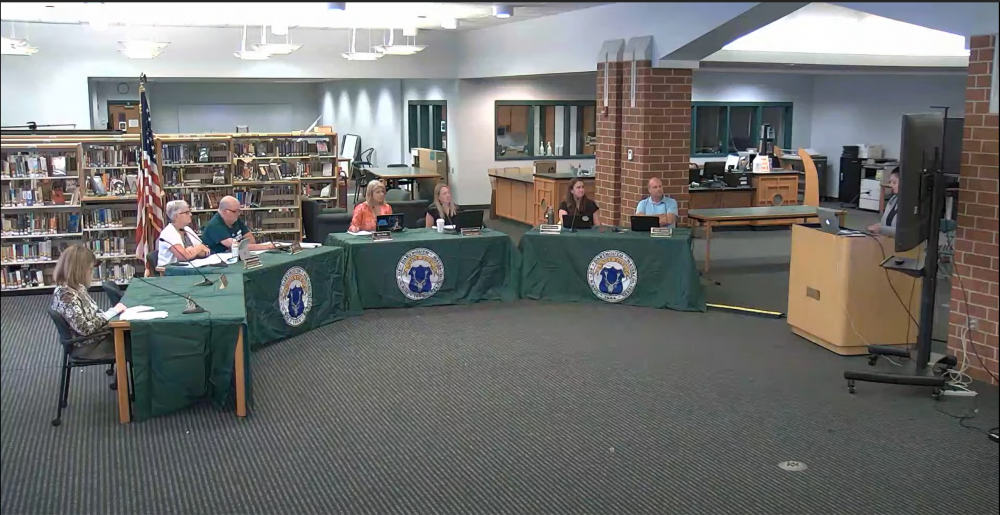School Committee backs stronger allergy policies after ‘mistakes made’
School policies around how to protect students with severe allergies were the subject of discussion at the Dartmouth School Committee’s Aug. 22 meeting.
The policies have come under greater scrutiny because of an incident at the end of the last school year in which a student was exposed to an allergen when his teacher brought in ice cream as an end-of-year treat for the class.
The student, a third-grader, was diagnosed with a life-threatening allergy to nuts and eggs, according to his mother, Sonia Coe, who spoke about the incident during the public comment portion of the meeting.
Despite the allergy, which was well-documented with the school and understood by the teacher, Coe said her son was given ice cream with eggs in it.
When he complained to the teacher that his throat “didn’t feel right,” the student was sent to the nurse’s office unaccompanied.
Upon arriving at the nurse’s office, Coe said her son began vomiting and the nurse was able to quickly diagnose him with an anaphylactic reaction. The nurse then used an EpiPen to stabilize the student and called for an ambulance to take him to the hospital.
Coe said it was around that time that she was notified by the school about what had happened.
“I was shocked that day,” she said. “I got a call that 911 had arrived after the nurse administered his epinephrine.”
Coe said she was not against the idea of having an ice cream party to celebrate the end of the year, but that she wished the school had informed her ahead of time so she could have prepared a safe alternative for her son.
She also expressed her gratitude to the school nurses for quickly diagnosing the issue and giving her son the life-saving shot.
But she also spoke about the importance of allergy awareness and following proper procedures for both preventing allergic reactions and treating them when they do arise.
“My son clearly said his throat didn’t feel right — he’s nine, I think that’s all he needs to say,” she said. “He said he needed the nurse and he was sent to the nurse, but he walked alone: not with a staff member, not with a peer.”
Coe said she was not advocating for bans on specific types of food.
“I don’t think that’s the real world,” she said. “In the real world they’re not going to care about his allergies.”
But she did want the school to treat allergy awareness as “more of a big deal,” incorporating allergy drills and more frequent training sessions into their policies to ensure that all staff were prepared to handle an emergency situation.
“It shouldn’t be something that’s just on the first day of school,” she said. “The more people that are aware, the more kids will be safe.”
School Committee members responded to Coe with emphatic support, acknowledging the failure in policy — and in practice — that led to the incident.
“It’s clear to me that mistakes were made on this day,” said committee member Chris Oliver. “We can have all the policies and procedures in the world, but if they’re not being followed, then there’s no point in having them in the first place.”
Other committee members recommended areas where they could look at the policy and make sure it took the “big picture” into consideration, like making sure that all staff members — including bus drivers, recess monitors, and substitutes — are properly trained.
Several members cited EpiPen training specifically as a crucial step.
“It’s one thing to have an allergy but it’s a whole different thing to have to either administer an EpiPen or give yourself an EpiPen,” Oliver said, adding that he has experienced an anaphylactic reaction himself. “I don’t wish that on anyone.”
The discussion ended with assurances from committee members, as well as Superintendent Dr. Bonny Gifford, that the schools would look to improve their policies going forward.
“We need to take this seriously,” said committee member Dr. Shannon Jenkins, “We’re about to have a discussion about school safety and more kids go to emergency rooms and die every year from allergies than die from school shootings… We should be taking this as seriously as we are taking our school security.”












